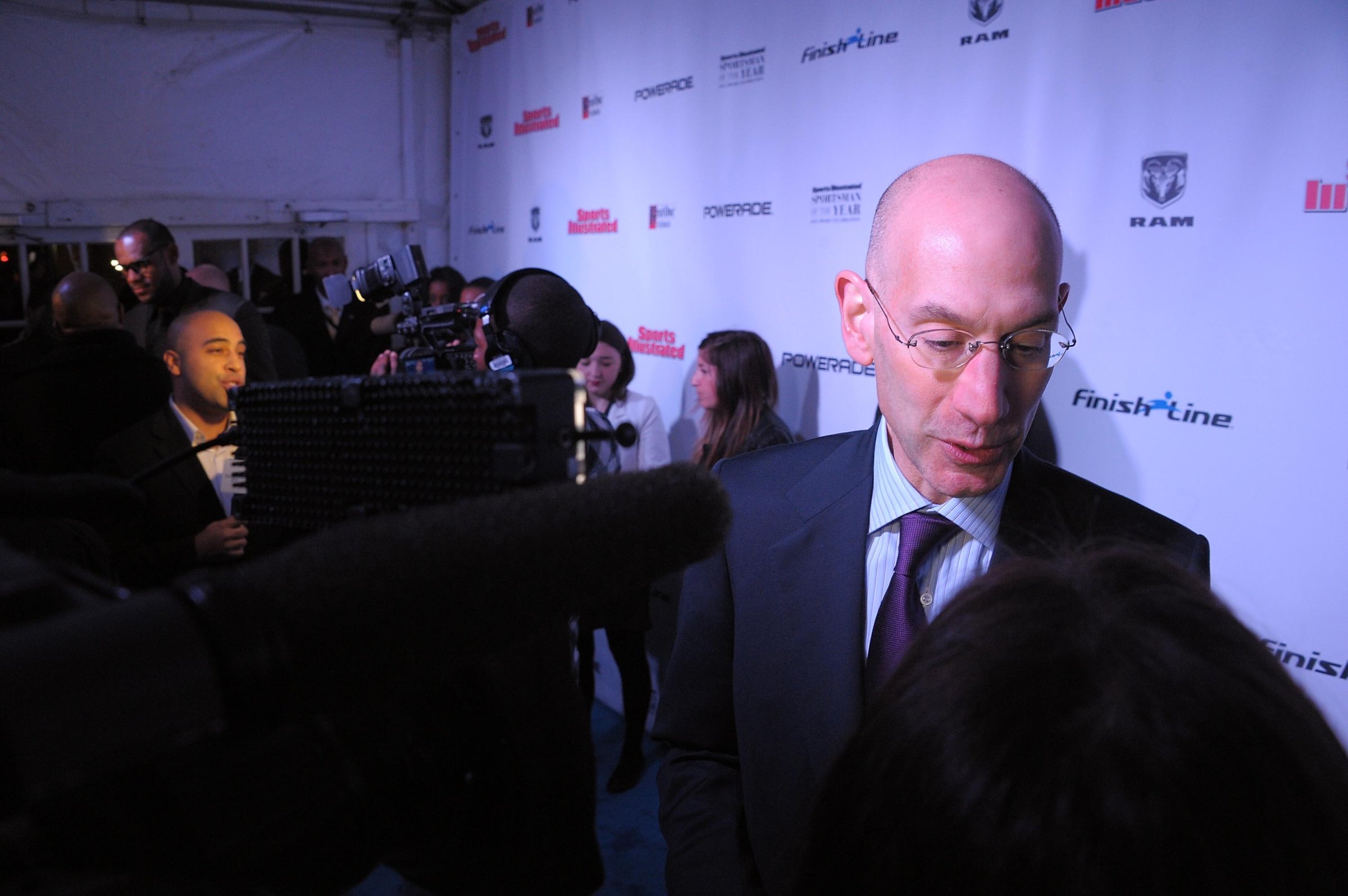
Take a look at the great crisis management success stories of past decades, stretching back at least to the 1980s, and a singularly powerful conclusion is inevitable: the decisive management of a crisis yields long-term benefits, whether it’s a Tylenol recall or a corporate financial problem. It will define the institution itself as accountable, shrewd and publicly committed for years to come.
Thanks to new commissioner Adam Silver, the NBA now enjoys just such a reputational opportunity.
In exacting unprecedented punishment on Los Angeles Clipper owner Donald Sterling for his recorded racist comments—lifetime banishment, a $2.5 million fine and an avowal to force sale of the team—Silver has done everything right. At least so far. Equally important, he has done so in a way that reflects his own understanding of how such challenges must be met, as well as the complex issues pertinent to professional basketball.
First, Silver understands that, as they say, you never get a second chance to make a first impression. What a new leader does at the beginning of his or her leadership sets a lasting tone and exerts a permanent influence on public perception. Remember FDR’s First 100 Days? Silver has drawn a strong line between himself and predecessor David Stern, whose actions affecting the players were not always perceived to be even-handed. But irrespective of that, the confidence with which Silver acted offers an exemplary lesson to others in leadership positions, whether there’s a crisis at hand or not.
Second, Silver understood that he didn’t really have much choice. The threatened boycott by players would have landed right atop the playoffs, an economic as well as reputational disaster for the league. The franchise hung in the balance. In that sense, Silver himself was as much a product of circumstance as a leader who molds circumstance. Yet the world is littered with the corpses of institutions that delay in the face of necessity. Fortunately, there was no dawdling here, despite Sterling’s professed contrition.
Third, it is essential in any kind of crisis to know who your stakeholders are, and Silver certainly understands where the NBA’s bread gets buttered. The loyalty of minority audiences significantly defines the NBA’s market. Silver acted with that audience (the fans, not just the players) in mind. He was sending those stakeholders an unequivocal message that has generally been received as it was intended to be, at least as evidenced by the parade of supportive tweets that ran on a crawl under every one of Tuesday’s televised playoff games.
Finally, and perhaps most importantly, Silver understood the need to act fast. No blue ribbon panels, no endless back and forth in an interminable inquiry with multiple leaks to the media along the tortuous path. A show of immediate decisiveness tends to preempt controversy. Even a speedy decision that might be debated or dissected at the moment or in retrospect provides closure. If closure is what crisis management is all about, such closure currently prevails, despite Mark Cuban’s well-intended reservations about the “slippery slope” the NBA has embarked on by banning Sterling.
Had the NBA let this situation fester, the focus of public attention would have shifted away from the Clippers and toward the NBA itself. Its internal processes would have been questioned. Its commitment to a zero-tolerance policy on racism would have been compromised. The NBA would be the problem, and the NBA is a far bigger target for a controversy-hungry media than the Clippers.
Instead, Silver’s swift justice, imposed on a man he describes as a long-time friend, helps immunize the NBA against any accusation that its processes are ineffectively labyrinthine or its policies at all ambiguous. More often than not, crises present opportunities to prove leadership. When the brand is at stake, it’s often the successful response to adversity that bolsters that brand in a way that wouldn’t have been possible under normal circumstances.
To be sure, this cathartic event will not resolve subtler racial issues that may inevitably arise in the coming months and years. But, to paraphrase Gilbert and Sullivan’s Pirates of Penzance, this “very model of a modern crisis manager” has at least given the NBA a strong template by which to address those future controversies.
Richard Levick, Esq., is Chairman and CEO of LEVICK, which provides strategic communications counsel on the highest-profile public affairs and business matters globally. Mr. Levick has been named four times as one of “The 100 Most Influential People in the Boardroom.” He is the co-author of four books and a regular commentator on television and LEVICKDaily.com.
More Must-Reads from TIME
- Donald Trump Is TIME's 2024 Person of the Year
- Why We Chose Trump as Person of the Year
- Is Intermittent Fasting Good or Bad for You?
- The 100 Must-Read Books of 2024
- The 20 Best Christmas TV Episodes
- Column: If Optimism Feels Ridiculous Now, Try Hope
- The Future of Climate Action Is Trade Policy
- Merle Bombardieri Is Helping People Make the Baby Decision
Contact us at letters@time.com